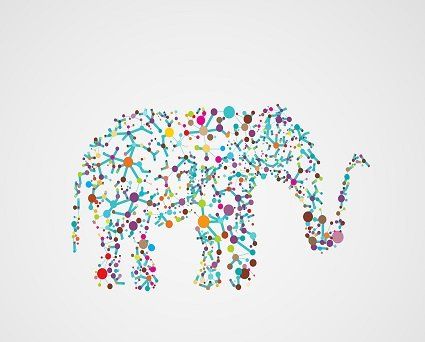Why Elephants Don't Get Cancer
In 1992, I moved to the Washington DC area and attended a conference on new and projected trends in cancer care at the National Institutes of Health.
Image © Marchenko Yevhen/ Shutterstock.com

In 1992, I moved to the Washington DC area and attended a conference on new and projected trends in cancer care at the National Institutes of Health. A pediatric immunologist who treated and studied rare genetically-based childhood illnesses told the audience of oncology nurses that in the future there will be no need for surgery, radiation, or systemic antineoplastic therapies to treat cancer. Rather, genetic molecular engineering will be used to stop and reverse early signs of cancer and counter carcinogenesis even at later stages. I sat in the audience and was awestruck by this forecast. I found it unfathomable that this could ever become a reality.
Fast forward to 2015, over 20 years later, and I read in the science column of the Los Angeles Times the story entitled, "Elephants' Anti-Cancer Secret" (October 10, 2015, p.B2). Reporting on a study published in a recent issue of JAMA,1, 2 the columnist shares the finding that elephants (and other large mammals) rarely get cancer. Scientists recently revealed the potential reason for such.
African elephants have twenty copies of a gene called TP53, which produces a protein that suppresses tumor growth. Humans on the other hand, have only one copy of this gene. Collaborating with a zookeeper at Utah’s Hogle Zoo in Salt Lake City and the chief veterinarian for Ringling Bros. Barnum and Bailey Circus, the researchers also identified that elephants were able to make copies of TP53 such that they were incorporated into the genome over time. Additionally, when the elephants’ cells were exposed to radiation, cell death occurred at twice the rate of human cells.
In recent years, the advent of targeted therapies and the identification of genes associated with heightened cancer risk have put the spotlight on genetics in the management of cancer.
The implications of this research will undoubtedly help keep the focus on this critical area of cancer research. The scientists involved in this investigation posited that perhaps a drug could be created that mimics the actions of TP53 or that the insertion of TP53 genes into precancerous cells could reverse mutations. Since it took millions of years for the elephants of today to evolve, I guess waiting 20 years for this type of knowledge to come forth isn’t that long to wait.
I’ve become a believer in the profound possibility of genetics in cancer therapy. That physician I heard decades ago was "right on."
References:
- Abegglen LM, Caulin AF, Chan A, et al. (2015). Potential Mechanisms for Cancer Resistance in Elephants and Comparative Cellular Response to DNA Damage in Humans. JAMA, Oct 8:1-11. doi: 10.1001/jama.2015.13134.
- Greaves M, Ermini L. (2015). Evolutionary Adaptation to Risk of Cancer: Evidence From Cancer Resistance in Elephants. JAMA, Oct 8:1-3. doi: 10.1001/jama.2015.13153.
Targeted Therapy First Strategy Reduces Need for Chemotherapy in Newly Diagnosed LBCL
December 7th 2025Lenalidomide, tafasitamab, rituximab, and acalabrutinib alone may allow 57% of patients with newly diagnosed LBCL to receive less than the standard number of chemotherapy cycles without compromising curative potential.